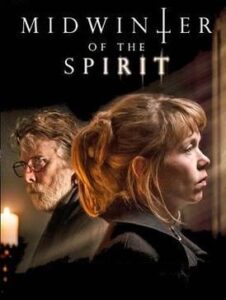
Curfew: A Remembrance of Phil Rickman
“Blessed are the skeptics. For they shall be oblivious of the numinous layers, largely unaffected by the dreary density of places, unbowed by the deadweight of ancient horror. Lucky bastards.” That rumination appears in Phil Rickman’s novel Curfew published in 1993 (titled Crybbe in the United Kingdom.) Rickman died this year on October 29 at the age of 74. To honor his memory, I delved into the book. It is set in a fictional rural town that straddles the border of England and Wales, a geographical area that the author knew well. The locals in the sequestered town of Crybbe are taciturn and don’t take kindly to folks from elsewhere which is referred to as “Off.” People from Off are regarded as interfering interlopers. So, when a wealthy entrepreneur and his entourage descend on the town with the intent of turning it into his vision of a New Age Lourdes, conflict naturally occurs. It’s not mere xenophobic alarm that threatens the community. For the long-term inhabitants dedicated to maintaining the rituals of the last four hundred years, there is much more to fear. Though the tremendous potential for Cosmic Consciousness commerce does tempt some of the newer local merchants. They see no harm in capitalizing on the mystical significance of border towns such as Crybbe. And if its ley lines and ancient mound are alluring to the spiritually inclined, the village should rightfully prosper from it. The ensuing restructuring widens the entryway to a barely contained maleficence.

The narrative is told from multiple points of view by a large assemblage of characters. Rickman is an adroit puppeteer, pulling the strings of each persona with precision. He imbues them all with quirks, frailties, and backstories that reveal behavioral motivations. Many of those finely delineated characters meet grisly demises: “Nobody had even thrown a coat over him, or a blanket. They’d simply tossed him on the bank, limp and leaking. Skin blue—crimped, corrugated. Eyes wide open—dead as a cod on a slab. Livid tongue poking out of the froth around his lips and nostrils.” At the denouement, the body count is rather high and there are surprises about who lives and who dies. When one or more of them is someone to whom the reader has become attached, it is quite a blow.
Rickman’s word skills bring to life a village that is moribund: “The sky had run out of sunlight, and it was once again a mean, cramped little town surrounded by pleasant rolling countryside, to which the inhabitants seemed entirely oblivious. Almost as if they were deliberately turning their backs on it all, living simple, functional lives on the lowest practical level, without joy, without beauty, without humor, without any particular faith, without…” A dreary dread casts a dense fog over Crybbe, plunging us readers into its miasma.
Phil Rickman was perhaps best known for his series of books featuring single mother/vicar/exorcist Merrily Watkins. One of the novels, Midwinter of the Spirit, was adapted as a British television miniseries in 2015. The praised production was co-created by the illustrious Stephen Volk. Curfew, however, is the Rickman book that has a special place in my heart. It was my introduction to his writing, and as the saying goes: You never forget your first.

